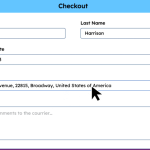Trust in a crypto ecosystem that is increasingly being hacked, rug-pulled, and quietly exploited is more valuable than ever. With DeFi, NFT, and DAO projects driving adoption, the integrity of smart contracts —those immutable, logic-constrained building blocks of Web3 —has become mission-critical. However, in an environment that promotes transparency and decentralization, most developers face a dilemma: how can they demonstrate that their contracts are secure without disclosing proprietary code?
Here we have a meeting point between Zero-Knowledge (ZK) proofs and artificial intelligence (AI) in one of the most technologically advanced blockchain security advancements: Zero-Knowledge AI Audits. These systems will ensure that a smart contract is correct without revealing its code, by relying on cryptographic proofs and machine intelligence to certify logic, structure and intent.
Meanwhile, with the emergence of token-based economies, measurements such as the Pi network price come to the forefront of attention, where speculative value and utility converge in real-time. This is the type of unstable and risky environment where security can not be tacked on at the end, instead, it must be integrated, and provable.
The Smart Contract Trust Dilemma
By definition, smart contracts are designed to run autonomously once they are deployed. They possess funds, impose regulations and enable everything, including staking to voting. They are, however, irreversible in most cases because of their self-executing nature, which means they contain bugs or vulnerabilities. A single line of Solidity code placed in the wrong location can cost millions of dollars or result in confiscation.
Although traditional audits are helpful, they are costly to carry out, as they involve manual inspections by third-party security teams. Audits are hardly foolproof even at that time. And to the developers who are creating new mechanisms or business logic, there is a risk that once they expose the code, even to an auditor, it may be cloned, exploited, or reverse-engineered by rivals.
The price of making a mistake in a permissionless system, where anyone can interact with deployed contracts, is existential. This is why the future of blockchain scalability and adoption has become the trustless, confidential, but correct validation.
Enter Zero-Knowledge Proofs
Zero-Knowledge Proofs (ZKPs) are a cryptographic protocol that allows one party to demonstrate to another, without revealing the supporting information, that a statement is correct. In the case of smart contracts, this implies that a contract developer might demonstrate that the logic of their contract is compliant with a verified standard (or that it has passed a security scan) without revealing the code of their contract.
This provides a beautiful approach to the smart contract dilemma. Developers no longer have to choose between keeping their secrets and staying safe. Using ZKPs, validators, investors, or platform integrators can ensure that a contract is operating as expected, even though they do not know how it is implemented.
AI comes into play to automate and scale these proofs. With the help of thousands of smart contracts audited by professionals, AI can be trained to identify patterns, raise flags, and even predict outcomes. When such capabilities are coupled with zero-knowledge architecture, a strong system results: a system in which smart contracts are machine-verifiable, cryptographically guaranteed, and leak-free.
Real-Life Use and New Platforms
Some startups and research groups are already developing zero-knowledge AI auditing frameworks. These systems are usually based on a codebase which is parsed and analyzed using an AI model trained on anomaly detection, functional logic and known exploit types. When the AI confirms compliance or no errors are detected, the system generates a ZK proof that the audit was successfully passed.
This ZK proof can then be published publicly on-chain or submitted to a DAO, grant committee, or protocol integration panel. They do not get the code per se but a mathematical certificate stating that the contract complies with the required levels of safety and efficiency.
Soon, decentralized finance platforms may start requiring such proofs as a condition for listing. Indeed, such systems can be implemented even within DAOs themselves, with the contracts deployed in treasuries or other governance tools being audited by ZK-AI and then enabled. The degree of automation that this brings may be able to reduce review cycles, human error, and bottlenecks in traditional audits.
Even AI models can be fine-tuned to determine risk in real-time, allowing them to update proofs in case contracts change or are amended. This brings about a new type of dynamic compliance, where smart contracts are monitored continuously without the need for manual re-auditing.
The Obstacles and Constraints
ZK-AI audits are relatively new, despite their considerable potential. Innovative contract ecosystems are rapidly evolving, and substantial datasets are required to train effective AI models. Not every vulnerability is pattern-based and historic, so there is always a possibility of zero-day logic bugs being missed.
There is another problem with the computational load. The creation of zero-knowledge proofs, particularly on complex contracts, is resource-demanding. This is being optimized with recursive ZK systems, and hardware acceleration and scalability are still being developed.
Then there is the issue of trust in AI. The incorrectly trained AI model or one that brings bias can issue unreliable verdicts. Even when they may never see the code of the contract, users will require transparency regarding how models are trained, updated, and maintained. The confidence in the process that generates the proofs will be as critical as the proof itself.
Will Web3 Have a New Standard of Security?
Zero-knowledge AI audits provide more than a technical solution; they redefine trust in the blockchain age. Instead of relying on human beings outside the project to certify code, projects can proceed towards provable integrity through mathematical verification. This brings a new form of confidence to DAOs, investors, and ordinary users, which is automated, private and scalable.
ZK-AI audits may become the de facto standard in high-risk environments, such as token presales, gaming protocols, and NFT minting contracts. With additional high-profile exploits shaking the DeFi sphere, such systems may provide a shield against the reputational and financial damages that all too frequently occur as a result.
Even large exchanges might start using ZK audit verification during the listing process. This would enable the projects to show readiness without any infringement to IP- this is a key issue to teams that are at early stages and doing something unique.
Massive Adoption? Or Too Soon to Tell?
Zero-knowledge AI audit remains a frontier technology, but the concept is gaining traction quickly. Machine learning, cryptography, and blockchain transparency may converge to provide a scalable approach to constructing and demonstrating secure systems in the Web3 world.
Security will not be an option as Web3 continues to grow. Automated verification tools that still offer privacy may be the first step towards a more secure, efficient, and trust-minimized crypto world. Although it is too soon to say that it will be massively adopted, it is also becoming apparent that the era of black-box code and launching code that is not audited is coming to an end.
Zero-knowledge AI audits provide a path ahead in a code, reputation, and economic risk-defined space, where no one is trusted, but the truth is demonstrated.








